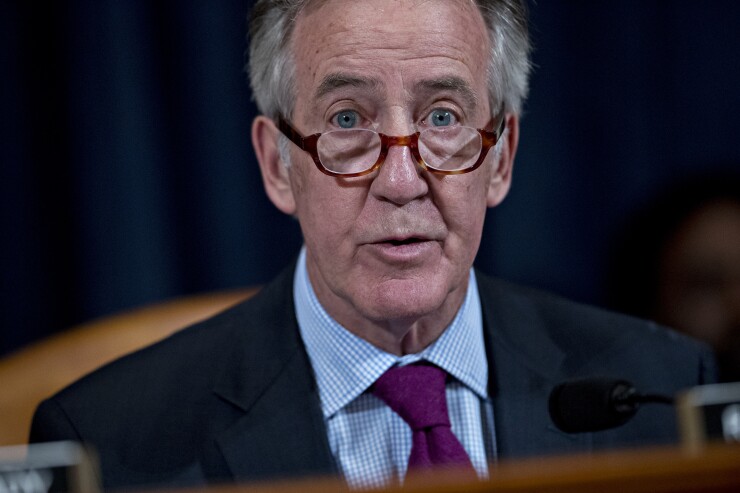Responding to a looming debt ceiling dust up in Congress, the House Ways and Means Committee voted Thursday to advance
The bill passed through the Committee on a 21 to 17 vote. The contentious hearing featured several references to U.S. debt held by China and assurances to Social Security recipients. If a United States default were to happen, it would negatively impact the capital markets, including the municipal market. As Congressional debate continues, credit rating agencies are already
"The legislation that we will consider today is not a substitute for addressing the debt limit, but it would ensure that we could avoid default, as the United States would be able to service its debt, and as importantly, we would be able to continue to provide health and retirement security to America's seniors," said Committee Chairman Jason Smith, R-Mo.

The bill proposes staving off default by stretching the federal budget via a tiered payment structure. Paychecks to members of Congress, the President and the Vice President would be withheld until the situation is resolved. The bill also authorizes the Secretary of the Treasury to issue new debt without a cap. Explaining the technical ramifications of the proposed legislation fell to Shaun Freiman, Congressional Chief Counsel.
"As introduced in the event that the debt limit is reached, the bill directs the Secretary of the Department of Treasury to issue new debt obligations exempt from the debt limit to the extent necessary to pay the principal and interest on debt held by the public and by the Social Security Trust Fund," said Freiman
Reps. John B. Larson D-Conn., and Linda T. Sanchez, D-Calif., both challenged the bill as it moved to a mark-up phase without having an official hearing. They also leaned into the notion that the tier system would put foreign government debt holders ahead of U.S veterans, the Border Patrol, tax refund recipients and everybody else the federal government writes checks to.
The Democratic response also questioned the federal government's ability to select who would receive checks.
"The Treasury makes an average of five million payments every day, said Rep. Richard Neal, D-Mass., the committee's ranking Democrat. "You can't flag some in the computer to pay on time, leaving others past due. Prioritization legislation is a way of making default sound acceptable, not a way of preventing it. They want default to sound manageable by promising to pay some of our bills."
Republicans attacked recent heavy spending legislation passed by the Biden Administration while the Democrats countered with memories of a budget surplus left by the Clinton administration that was dissolved by two unfunded wars and two rounds of tax cuts.





